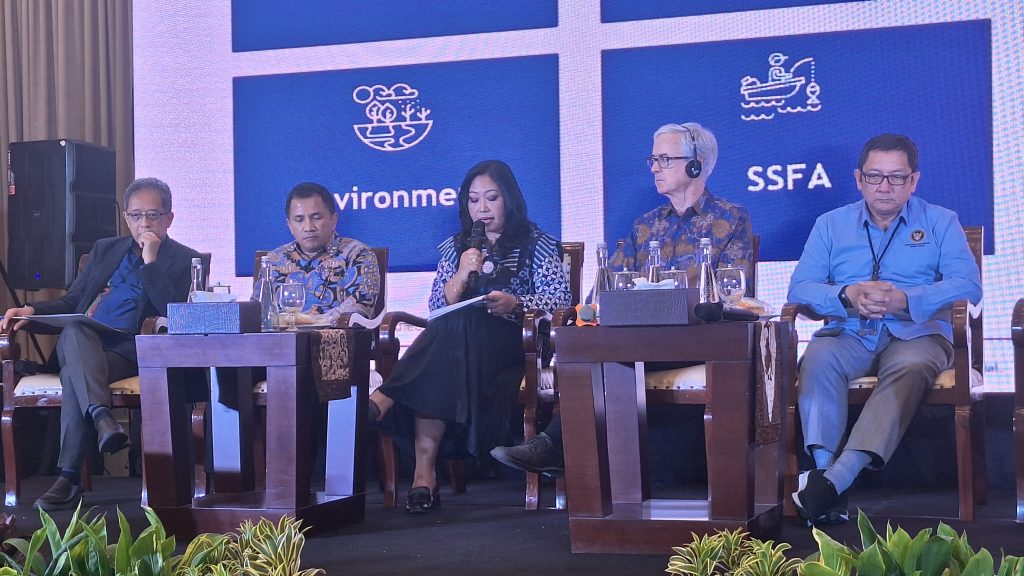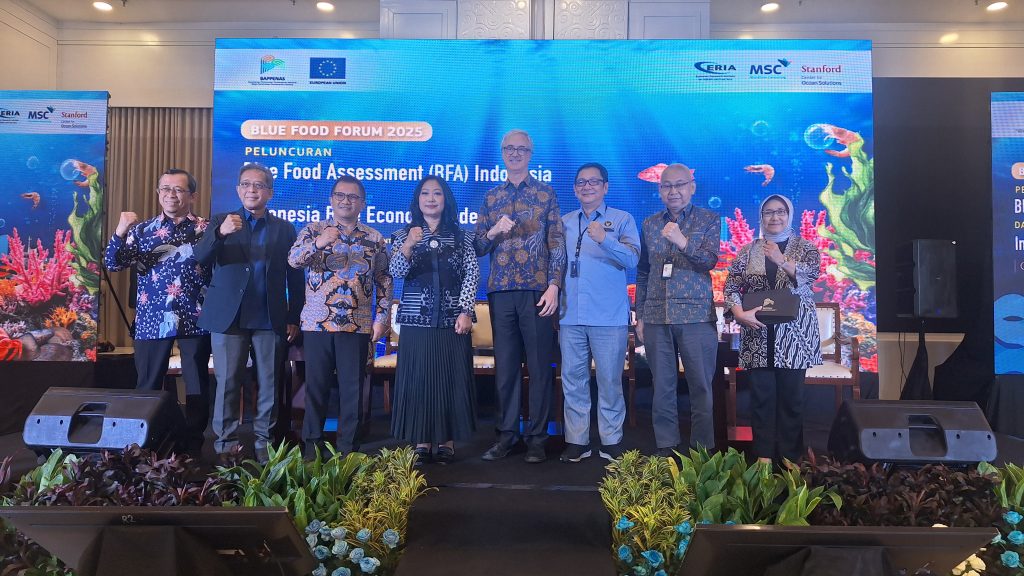MSC supported BAPPENAS in launching the Blue Economy report: Strengthening the role of small-scale fisheries for Indonesia’s food security
by MSC
Aug 8, 2025
2 min
On August 6, 2025, BAPPENAS launched the Blue Food Assessment report in Jakarta as part of its Blue Economy strategy. MSC supported the launch as a technical partner, contributing qualitative research on small-scale fisheries and aquaculture in four provinces. The event reinforced the government’s commitment to inclusive, sustainable fisheries to drive long-term development.
The Ministry of National Development Planning (BAPPENAS) has officially launched a national report titled “Accelerating the Blue Economy in Indonesia” on August 6, 2025 in Jakarta. It is part of a larger strategy to enhance food security and promote sustainable development. The report is set against the context of a global crisis and the escalating impacts of climate change. Several partners, which include MSC (MicroSave Consulting), have contributed to the Blue Food Assessment through qualitative field research.
MSC participated in the launch event held in Jakarta as a technical partner. During the event, MSC emphasized the need to understand the conditions and priorities of small scale fisheries and aquaculture (SSFA). The SSFA community has long sustained the backbone of Indonesia’s aquatic food sector, but remains significantly under-supported.
“Gender dynamics play a pivotal role in how communities access natural resources,” said Grace Retnowati, Executive Director of MSC Southeast Asia. “When women’s contributions are overlooked, their ability to claim rights and benefit from resources is diminished. Add to that the territorial tensions between large and small-scale fishers, and we see how equity and sustainability must go hand in hand.”
The report adopted a qualitative approach and examined the four key provinces of East Java, East Nusa Tenggara, South Sulawesi, and Maluku. This approach engaged with more than 140 community stakeholders, local governments, and the private sector. Although SSFA actors account for 85% of the national fisheries sector, they still face many challenges. These include limited access to finance, inadequate post-harvest technology, high food loss rates, and constant pressure from climate change and environmental degradation.
The Ministry of National Development Planning (Bappenas), Rachmat Pambudy emphasized the strategic role of fisheries in national development. “Fish is our most efficient source of protein, rich in omega-3 and essential for nutrition,” he said. “It has long supported the livelihoods of coastal communities. As we pursue the Vision of Indonesia Emas 2045, the ocean must be safeguarded as a vital source of life and prosperity.”
He noted that Blue Food development will be prioritized over the next five years, in line with Asta Cita and Indonesia’s identity as the world’s largest archipelagic nation.

The report outlines a set of concrete recommendations. These include how to integrate aquatic foods into social protection schemes and promote nutrition literacy through behavior change communication. It also highlights how to apply eco-friendly technology innovations and expand social protection for small-scale fishers and aquaculture farmers.
The blue economy can potentially increase marine sector’s contribution to GDP by up to 15% by 2045. This events marks how the government is committed to place the blue economy as a cornerstone of Indonesia’s long-term development.
 by
by  Aug 8, 2025
Aug 8, 2025 2 min
2 min 

Leave comments